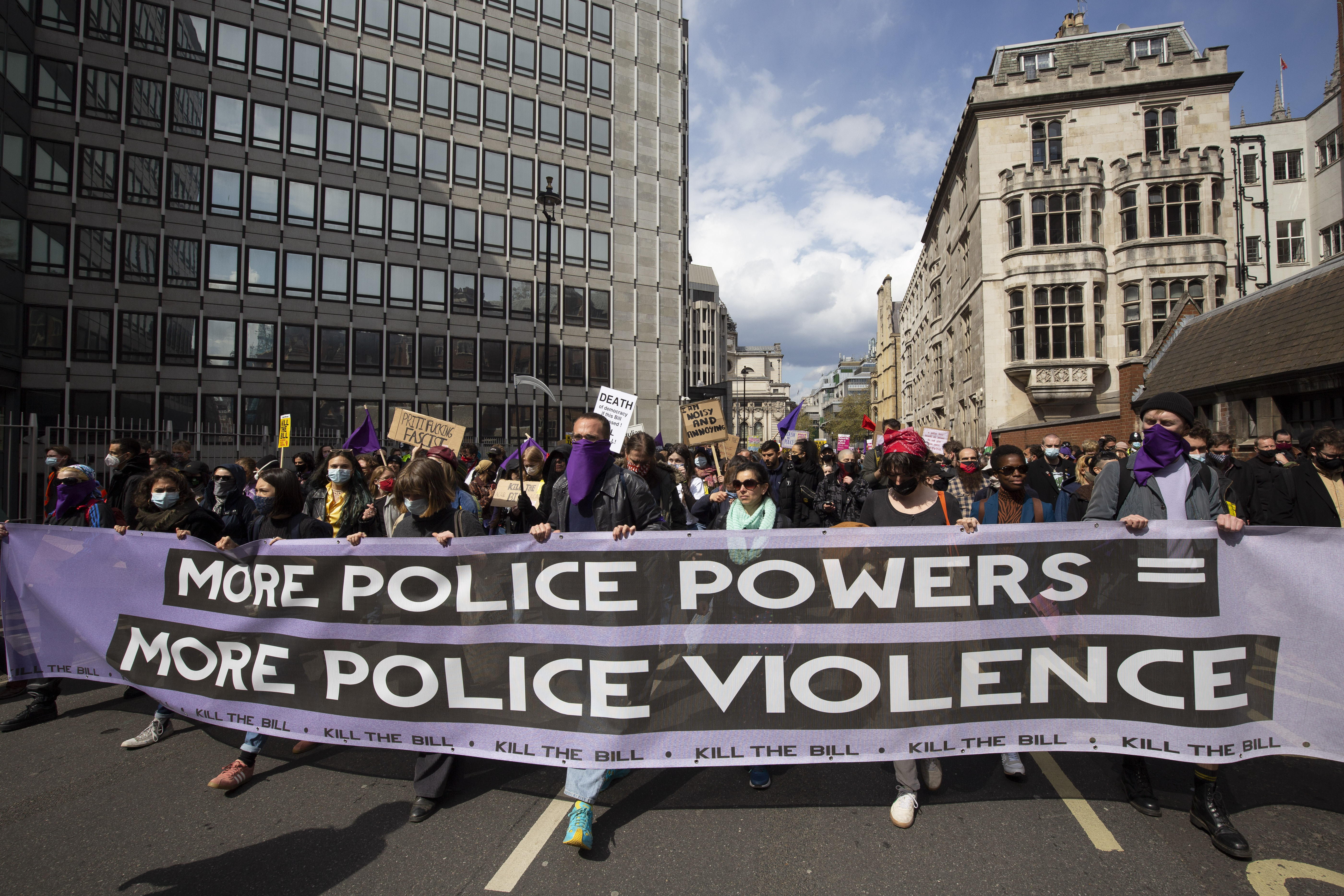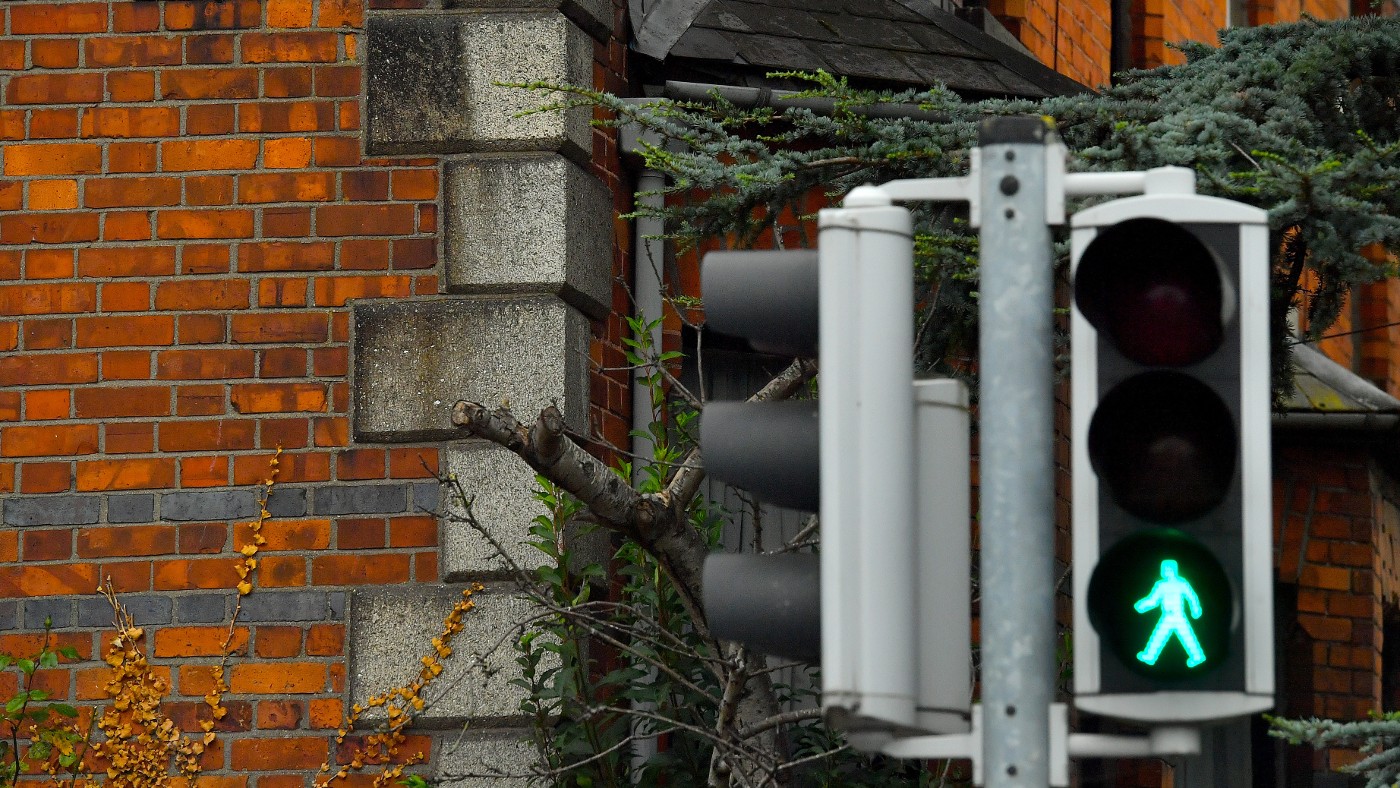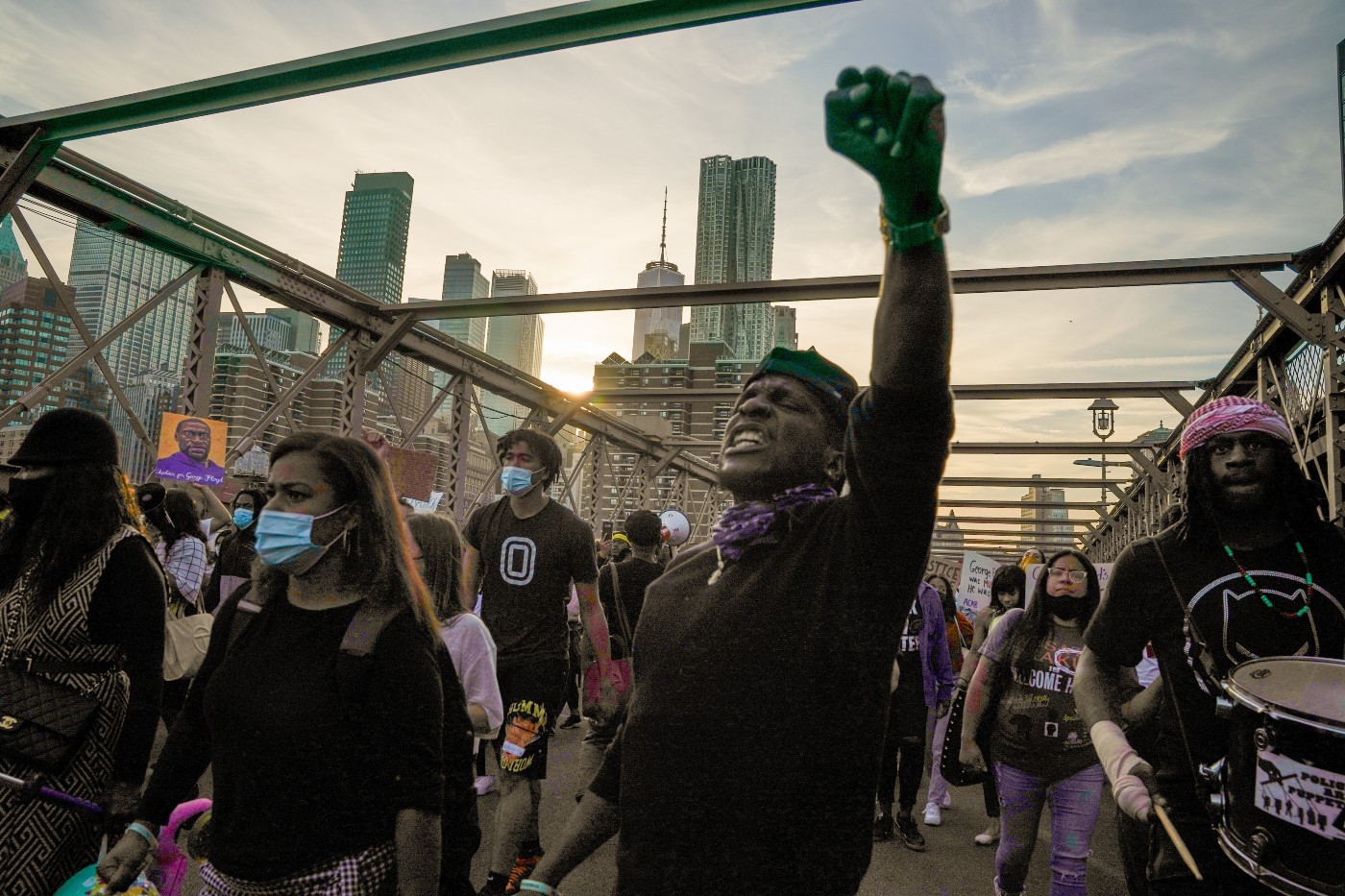‘Amendments to the government’s policing bill are dictators’ powers’
Your digest of analysis from the British and international press

- 1. Jailed for 51 weeks for protesting? Britain is becoming a police state by stealth
- 2. Prove to anti-vax mob that jabs do work by getting back to normality
- 3. It might not feel like it to some students, but university staff strikes are in their best interests
- 4. Masks aren't a minor inconvenience. They're dehumanising and controlling
- 5. David Blunkett is right: Radio 4 has lost its golden touch
A free daily email with the biggest news stories of the day – and the best features from TheWeek.com
You are now subscribed
Your newsletter sign-up was successful
1. Jailed for 51 weeks for protesting? Britain is becoming a police state by stealth
George Monbiot for The Guardian
on dictators’ powers
The last-minute amendments “crowbarred by the government” into the police, crime, sentencing and courts bill are a “blatant attempt to stifle protest, of the kind you might expect in Russia or Egypt,” argues George Monbiot. He mentions measures that would ban protesters from attaching themselves to another person, to an object, or to land, and those that make it a criminal offence to obstruct in any way major transport works from being carried out, with a maximum prison sentence of 51 weeks. “Perhaps most outrageously, the amendments contain new powers to ban named people from protesting,” he adds. “These are dictators’ powers,” argues The Guardian columnist, and “the country should be in uproar over them, but we hear barely a squeak”. The government knows the new powers are illegitimate, he contends, “otherwise it would not have tried to avoid parliamentary scrutiny”. Frustrated at the lack of outrage over what is happening to our right to protest, Monbiot asks: “Why isn’t this all over the front pages? Why aren’t we out on the streets in our millions, protesting while we still can?”
The Week
Escape your echo chamber. Get the facts behind the news, plus analysis from multiple perspectives.

Sign up for The Week's Free Newsletters
From our morning news briefing to a weekly Good News Newsletter, get the best of The Week delivered directly to your inbox.
From our morning news briefing to a weekly Good News Newsletter, get the best of The Week delivered directly to your inbox.
2. Prove to anti-vax mob that jabs do work by getting back to normality
Jane Moore for The Sun
on persuading the unvaccinated
“Conspiracy theorists have pointed out that ‘Omicron’ is an anagram of ‘moronic’ and say it’s a sign we’re being taken for mugs by evil geniuses who want to control us,” writes Jane Moore for The Sun. If you “dig deeper in to Crazyland”, she continues, “you’ll find others screeching that it’s also an anagram of oncomir, a molecule that’s associated with cancer”. Back in the “real world”, we know that the latest Covid-19 variant exists, Moore says. But what we actually should be questioning is “why the gathering doomsayers are treating it like the plague”. Yes, “viruses mutate and produce variants”, she writes. “They always have and they always will. But what we can change is how we react to them.” Data says that “75% of those currently in intensive care are unvaccinated” – and “that’s by choice”, says Moore. The government needs to persuade the unvaccinated that “in the interests of themselves and society as a whole”, they should get the jab. To do that, they need to show “that the doubly vaccinated/boosted masses are returning to normal life, not being threatened with the prospect of yet another lockdown at the first sign of a mild variant”.
A free daily email with the biggest news stories of the day – and the best features from TheWeek.com
3. It might not feel like it to some students, but university staff strikes are in their best interests
Kimi Chaddah for the i news site
on staff and student solidarity
This week, tensions over “poor conditions, cuts and pensions” have led staff at 58 universities to engage in three days of strikes, writes freelance journalist Kimi Chaddah for the i news site. To someone who has “long covered the politics surrounding these strikes”, it seems that standing in solidarity with staff is “the most important thing students can do”, she continues. However, after an academic year “tainted by Covid-19” and “underpinned by the perception that strike action is indicative of staff apathy to student experiences”, hostility is emerging, Chaddah says. But, she continues, “the prevailing narrative that staff members on strike don’t care about their students and their education fails to reflect that staff are fighting for students’ futures.” Any attempt to undermine the solidarity which “should exist between students and staff” is “unhelpful at best” and “ignores overlapping issues”, she concludes.
4. Masks aren't a minor inconvenience. They're dehumanising and controlling
Philip Johnston for The Telegraph
on muzzling mechanism
“I object to masks not because my reading glasses steam up or my breathing is impaired but because they are dehumanising devices that should be obligatory only in extremis, not as a go-to expedient for a panicky Cabinet,” writes Philip Johnston for The Telegraph. Until last summer, he reminds readers, “official World Health Organization advice was against face coverings which it said were likely to be counterproductive”, in part because they encouraged people who should stay at home to move around because they believed the mask to be a safety barrier. “On my train yesterday a masked woman was coughing and spluttering, presumably thinking she was causing no harm,” he reports, “yet she was more of a spreader than someone without a mask who has nothing wrong with them”. Once more we are being “ordered to muzzle up” because it is “seen as a community-minded thing to do” but Johnston feels masks “also act as a useful control mechanism for a state that wants a compliant population” because “we are far more receptive to yet more restrictions on our freedoms if we inhabit a dystopian world of half faces and frightened eyes”.
5. David Blunkett is right: Radio 4 has lost its golden touch
Libby Purves for The Times
on protecting a national treasure
Labour life peer and former Home Secretary David Blunkett was right when he spoke out “about what he believes to be the declining quality of Radio 4”, writes Libby Purves for The Times. “When the leading and publicly owned speech radio channel is found wanting by an intelligent, educated listener who is also blind”, the BBC’s director-general Tim Davie “shouldn’t dare to brush it off as media spite”. Blind people are the radio’s “expert critics”, Purves continues. And the medium is “vulnerable to sharper judgment than TV: its voice is in the room with you, in your head”. Therefore “Radio 4 is treasurable, or should be”. Purves says she has remained a “lifelong loyalist and listener” of Radio 4, but the controller “should listen acutely to Blunkett”. He is “not alone in feeling depressed by its drift into a particular emphasis on ‘multicultural diversity, gender issues and identity politics’”, she writes. Although these are “fine issues”, the problem comes when they “overwhelm the casual, accidentally met joys and surprises of the schedule”. “David Blunkett, I feel your pain,” she concludes.
-
 Should the EU and UK join Trump’s board of peace?
Should the EU and UK join Trump’s board of peace?Today's Big Question After rushing to praise the initiative European leaders are now alarmed
-
 Antonia Romeo and Whitehall’s women problem
Antonia Romeo and Whitehall’s women problemThe Explainer Before her appointment as cabinet secretary, commentators said hostile briefings and vetting concerns were evidence of ‘sexist, misogynistic culture’ in No. 10
-
 Local elections 2026: where are they and who is expected to win?
Local elections 2026: where are they and who is expected to win?The Explainer Labour is braced for heavy losses and U-turn on postponing some council elections hasn’t helped the party’s prospects
-
 Tourist sparks bomb alert after accidentally ordering a 'grenade'
Tourist sparks bomb alert after accidentally ordering a 'grenade'Tall Tales And other stories from the stranger side of life
-
 ‘Irony’ as Zoom calls staff back to office
‘Irony’ as Zoom calls staff back to officefeature And other stories from the stranger side of life
-
 Green man will stay on longer for fat Brits
Green man will stay on longer for fat Britsfeature And other stories from the stranger side of life
-
 The U.S. veterinarian shortage crisis
The U.S. veterinarian shortage crisisSpeed Read With an anticipated shortage of 15,000 vets by 2030, it will be harder to get care for pets
-
 Company teaches mask-wearers to smile again
Company teaches mask-wearers to smile againfeature And other stories from the stranger side of life
-
 George Floyd legacy: what has changed in the US three years on
George Floyd legacy: what has changed in the US three years onfeature Police officers are more accountable but has ‘white empathy’ hit a wall?
-
 How your laughter shows when you’re in love
How your laughter shows when you’re in lovefeature And other stories from the stranger side of life
-
 Global happiness has been 'remarkably resilient' over the past three years
Global happiness has been 'remarkably resilient' over the past three yearsfeature